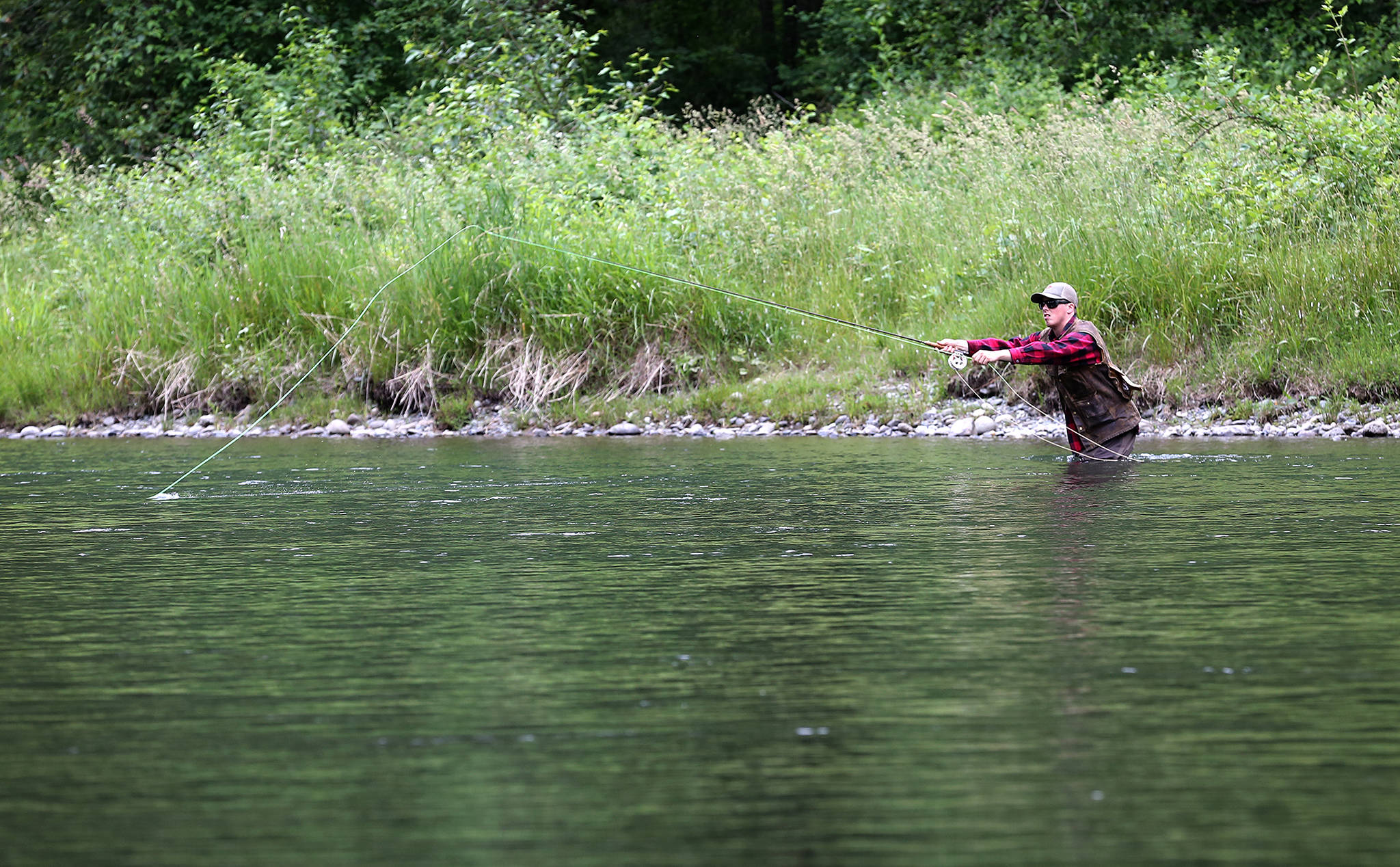By The Herald Editorial Board
The big ideas get the most attention, but they aren’t the only solutions that are required.
A draft of a long-awaited federal report on a proposal to remove four dams on Washington’s portion of the Snake River to help improve habitat for wild salmon was released last month, with the recommendation to keep the dams but look for other ways to aid salmon. While opposed by many, the removal of the dams is supported by others who see that option as one of the most effective ways to rebuild salmon runs, and, at the same time, help the state’s Southern Resident orca whales, which feed almost exclusively on salmon from the state’s rivers, including the Columbia.
With the final report not expected until this fall, that conversation will continue. But there are other solutions that require action now and can contribute to the health and future of both salmon and orcas.
One of those proposals has passed the state House and is now on the Senate floor awaiting a vote before Friday’s deadline for passage of non-budgetary legislation.
House Bill 1261 would limit a specific mining practice, barring it from some of the state’s most critical salmon and steelhead habitat, including on sections of streams and many rivers in Snohomish County.
Despite the best efforts of state agencies, tribes, environmental groups, volunteers and others to improve habitat on streams, rivers and their riparian areas, recent counts of salmon and steelhead have continued to decline or show little gains throughout the state.
A recent survey by the Snohomish County Public Utility District on the Sultan River of winter steelhead found just 55 fish, only slightly better than the count in 2018, which showed just 28 fish. Although the numbers fluctuate, the Sultan River — which feeds the Skykomish and Snohomish rivers — has averaged about 93 steelhead in the last 12 years, according to the PUD’s counts, less than half of its most recent high of 194 in 2008.
The legislation would limit a practice called motorized suction dredging, barring it from about 11,000 miles of streams and rivers identified as critical habitat for salmon, steelhead and bull trout. The practice would still be allowed on the remaining 61,000 miles of streams and rivers in the state.
Motorized suction dredging — which has occurred in recent years on Snohomish County streams, including those feeding the Pilchuck, Sultan and Skykomish rivers — uses a gasoline-powered pump, mounted on a raft or boat, to pull up gravel from stream beds; filter out gold, silver, jade and other minerals; then return the tailings to the stream bed.
A single suction dredge can move as much as 17 cubic yards of gravel in an hour, according to testimony before the House environment committee earlier this year.
While the state Department of Fish and Wildlife currently limits the dredging to times of the year when young fish are not present, the dredging still can degrade habitat on which the fish rely. While nearly all of the material is returned to the stream bed, dredging can disturb habitat important to fish spawning and hatching, producing silt that can make the area more shallow and warmer, poor conditions for salmon.
And while the practice does not routinely introduce pollutants into the stream, the dredging can stir up toxins contained beneath stream beds and redistribute them into the water. The region’s mining past introduced mercury and other pollutants into rivers that the dredging disturbs and releases again into the environment.
The legislation would continue to allow nonmotorized mining, such as gold-panning.
Several western states, including California, Oregon and Montana, have adopted similar laws, most more stringent than what HB 1261 proposes.
Those who use the technique to mine for valuable material, continue to defend it, including Chuck Wilson, of Seattle, who heads the Washington Prospectors Mining Association, and has identified the Sultan River as one of his favorite spots for suction dredge mining.
Wilson, in an interview last month with the Yakima Herald-Republic, said the pumps are designed to protect fish, even those drawn into them.
“There’s a lot of misconceptions about the equipment we use, including that the dredge has blades inside that chop up fish,” he told the Yakima newspaper. “That’s not true. I’ve been in a river where fish come up to the tube, go through, then come back and go through again. They think it’s Disneyland.”
Claiming salmon enjoy the ride through a pump is not a convincing defense of one’s hobby.
The Herald-Republic also interviewed Kim McDonald, a Seattle-based ecologist and forester with Shelterwood Consulting, who has witnessed dredging operations for years as well as the efforts to restore habitat.
“Everyone is making sacrifices in Washington, from rates paid to public utilities to irrigators who tamp down on their water usage,” McDonald told the Herald-Republic. “Every single thing matters when you’re dealing with these fairly fragile ecosystems and are trying to bring back these species.”
That effort and financial support — from taxpayers and donors — spent in the last 20 years on improvements to critical habitat should not be allowed to be dredged up, spit out and wasted.
Senate passage of HB 1261 provides a reasonable compromise to protect 11,000 miles of the state’s most valuable fish habitat.
Talk to us
> Give us your news tips.
> Send us a letter to the editor.
> More Herald contact information.

























